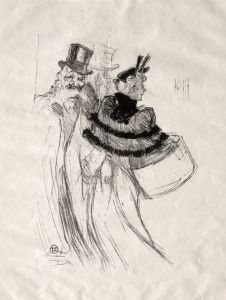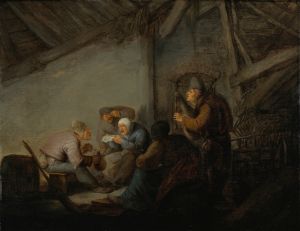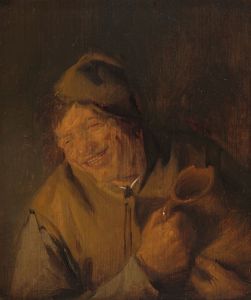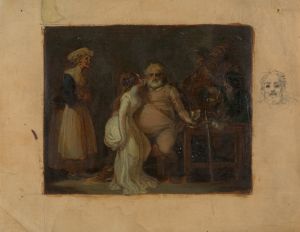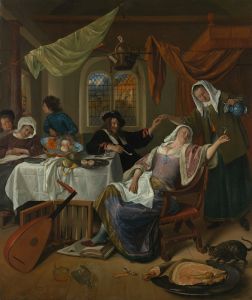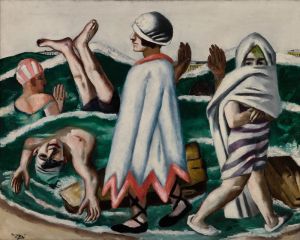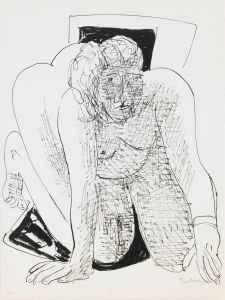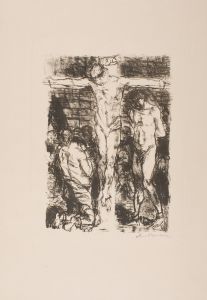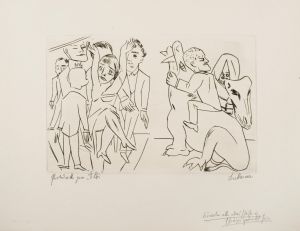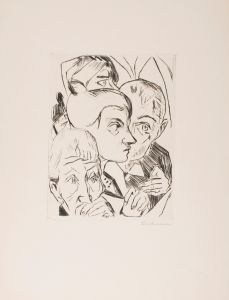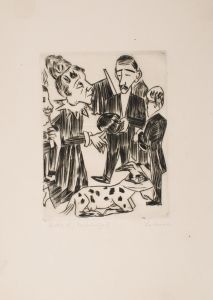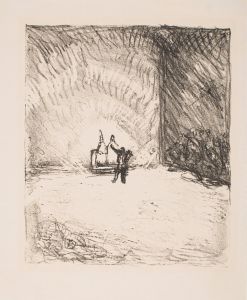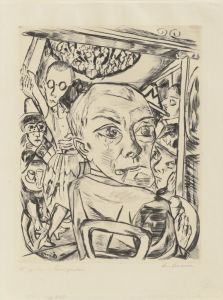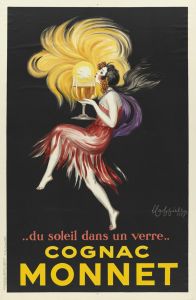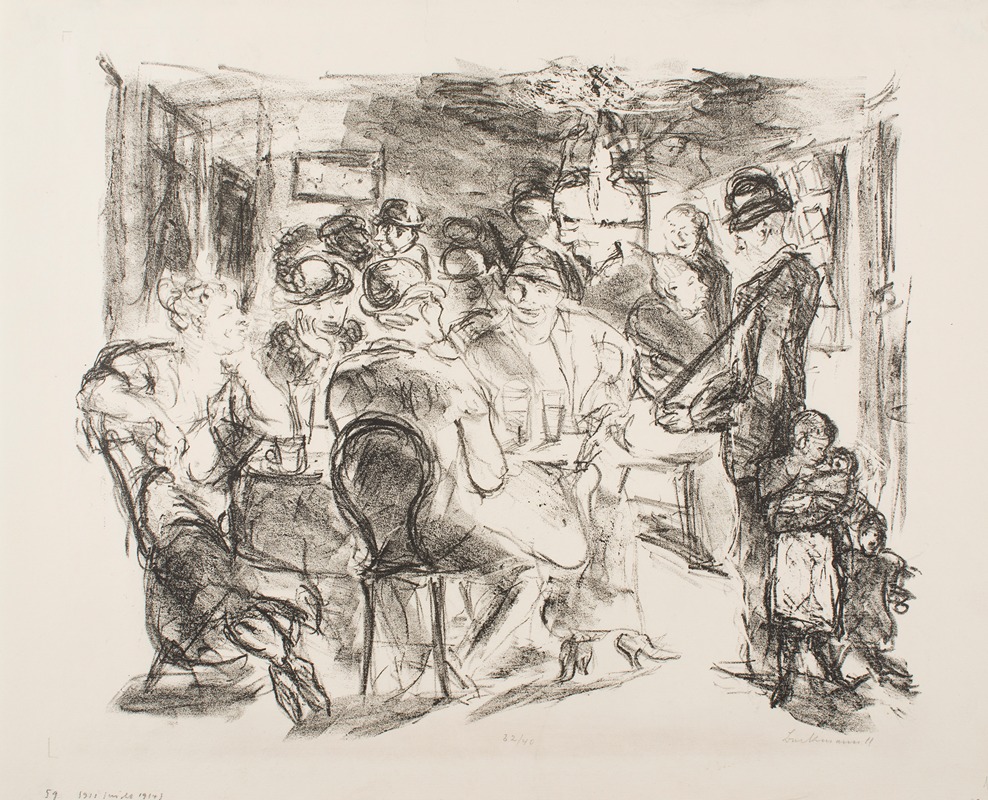
Tavern
A hand-painted replica of Max Beckmann’s masterpiece Tavern, meticulously crafted by professional artists to capture the true essence of the original. Each piece is created with museum-quality canvas and rare mineral pigments, carefully painted by experienced artists with delicate brushstrokes and rich, layered colors to perfectly recreate the texture of the original artwork. Unlike machine-printed reproductions, this hand-painted version brings the painting to life, infused with the artist’s emotions and skill in every stroke. Whether for personal collection or home decoration, it instantly elevates the artistic atmosphere of any space.
"Tavern" is a painting by the German artist Max Beckmann, created in 1946. Beckmann, known for his distinctive style that combines elements of Expressionism and New Objectivity, was a prominent figure in the art world during the early to mid-20th century. His works often reflect the tumultuous events of his time, including the impact of World War I and World War II, as well as his personal experiences and philosophical reflections.
"Tavern" is a significant piece within Beckmann's oeuvre, showcasing his mature style characterized by bold lines, dramatic compositions, and a deep exploration of human psychology and social dynamics. The painting depicts an interior scene of a tavern, a common social setting that Beckmann frequently explored in his works. Taverns, bars, and cafes were recurring themes in his paintings, serving as microcosms of society where various human interactions and emotions could be observed and depicted.
In "Tavern," Beckmann employs his typical use of strong, dark outlines and a rich, vibrant color palette. The composition is complex, with multiple figures engaged in different activities, creating a sense of movement and interaction. The figures are rendered in a somewhat distorted and exaggerated manner, a hallmark of Beckmann's style, which adds to the emotional intensity and psychological depth of the scene.
The painting reflects Beckmann's interest in the human condition, particularly the themes of alienation, existential angst, and the search for meaning in a chaotic world. The tavern setting serves as a metaphor for the broader social environment, where individuals come together yet remain isolated in their own experiences and struggles. This duality of connection and isolation is a recurring motif in Beckmann's work.
Max Beckmann's life and career were profoundly affected by the political and social upheavals of his time. Born in Leipzig in 1884, he experienced the horrors of World War I firsthand, serving as a medical corpsman. The trauma of the war had a lasting impact on his art, leading him to explore darker themes and more complex compositions. During the rise of the Nazi regime, Beckmann's work was labeled as "degenerate art," and he was forced to leave Germany. He spent the latter part of his life in exile, first in Amsterdam and later in the United States, where he continued to create and teach until his death in 1950.
"Tavern" is a testament to Beckmann's ability to capture the essence of human experience through his unique artistic vision. The painting not only reflects the social and psychological realities of its time but also resonates with universal themes that continue to be relevant today. Beckmann's work remains influential, and "Tavern" is a notable example of his contribution to modern art, illustrating his mastery of form, color, and narrative complexity.





